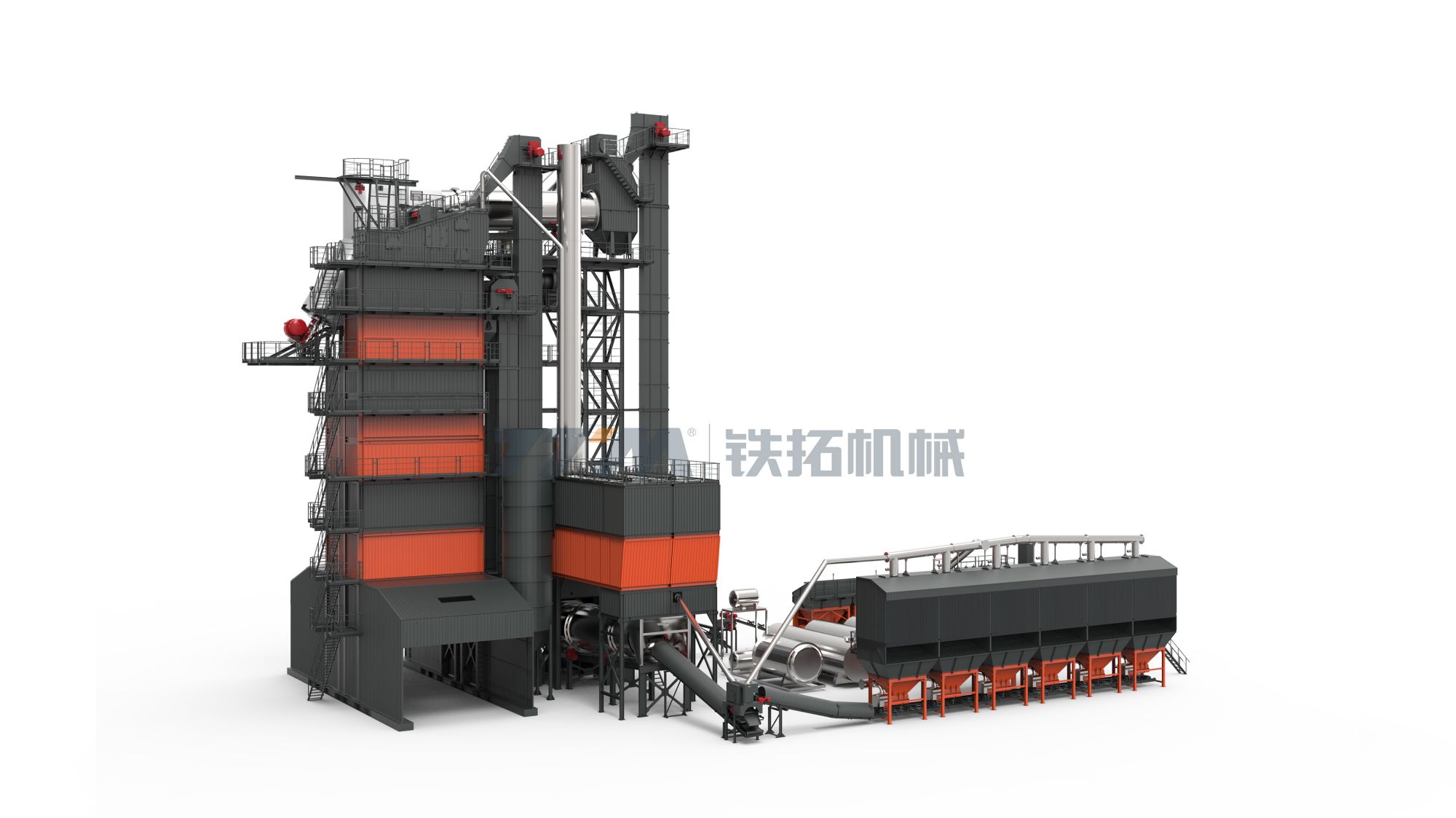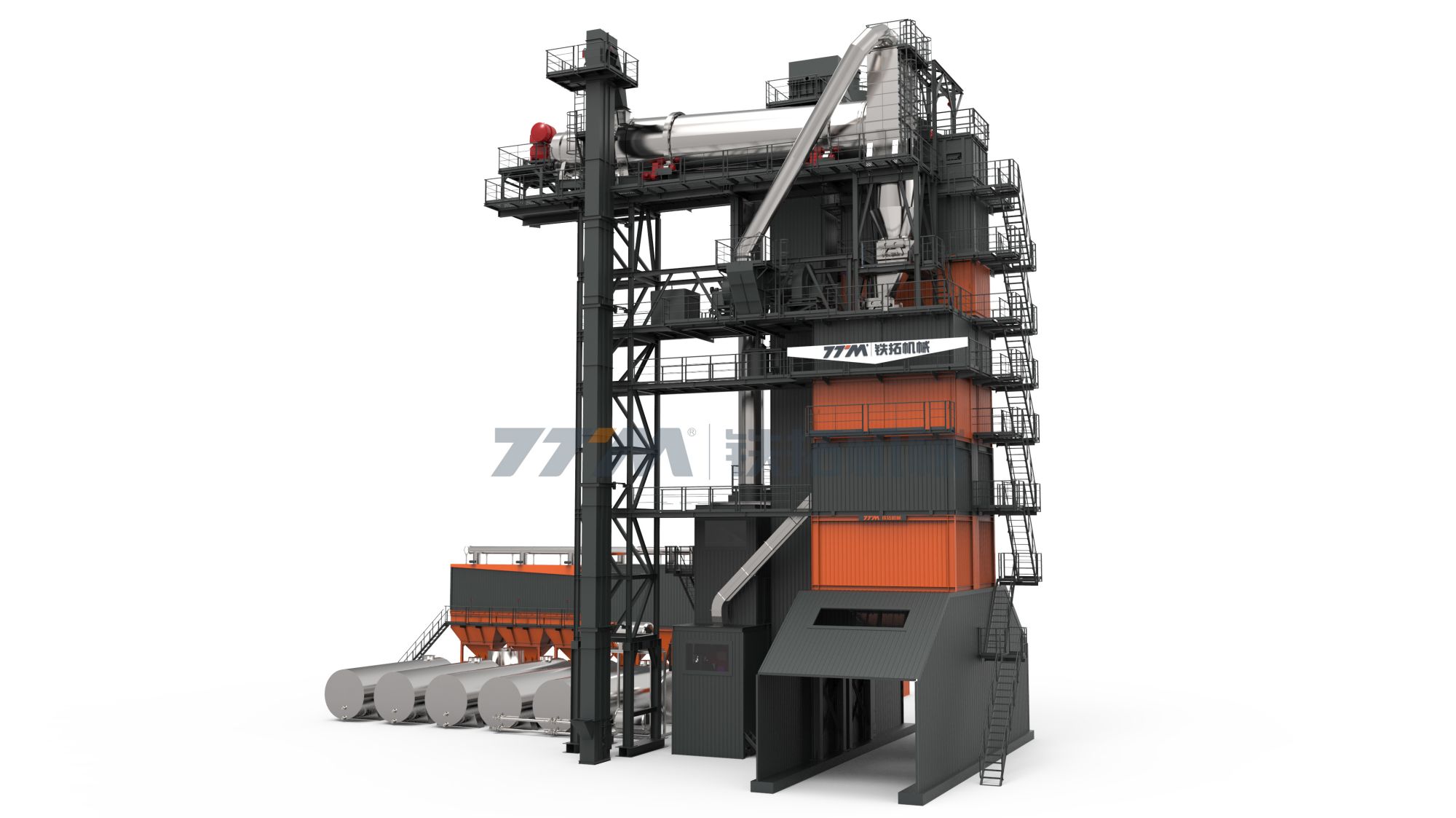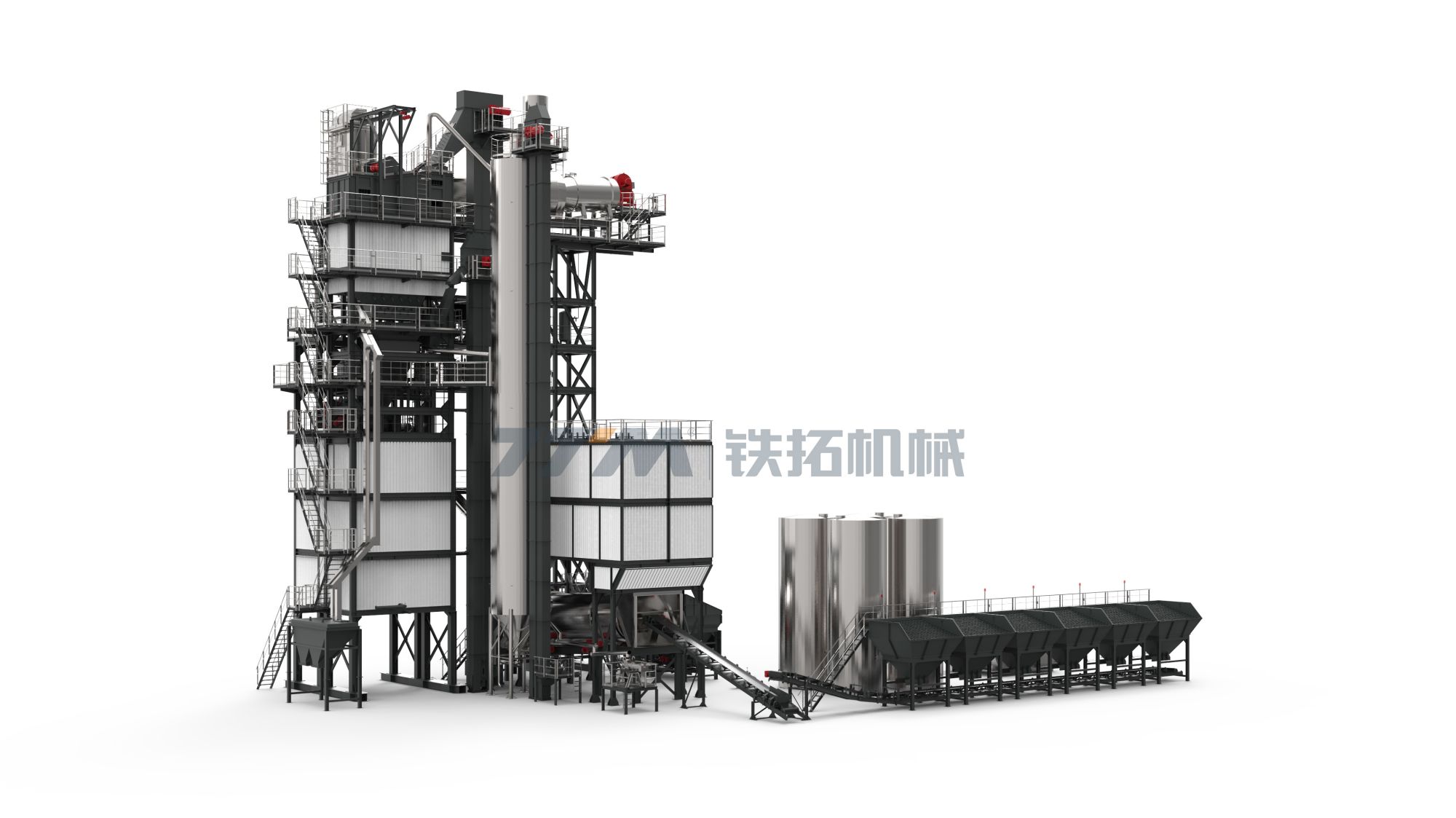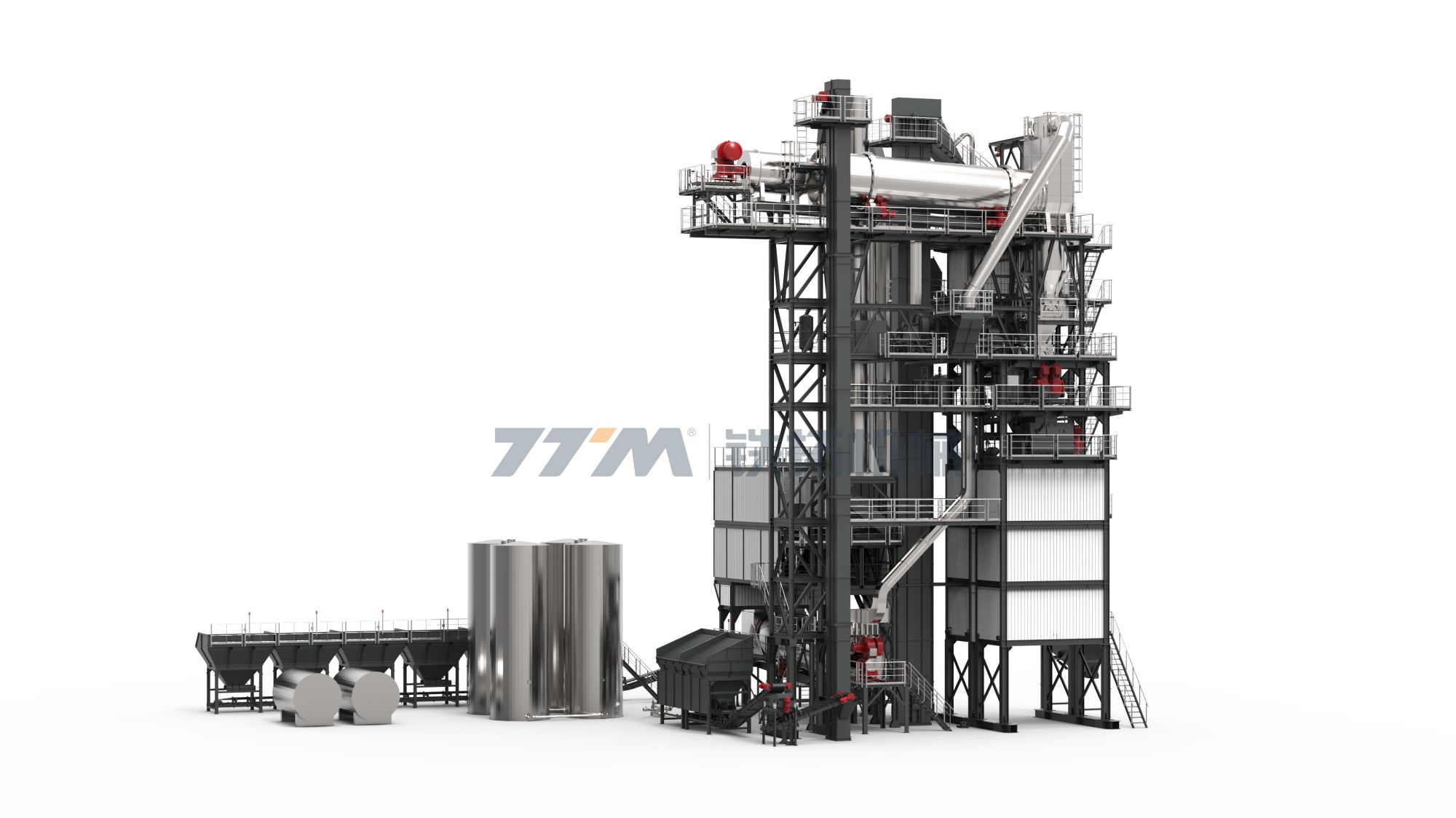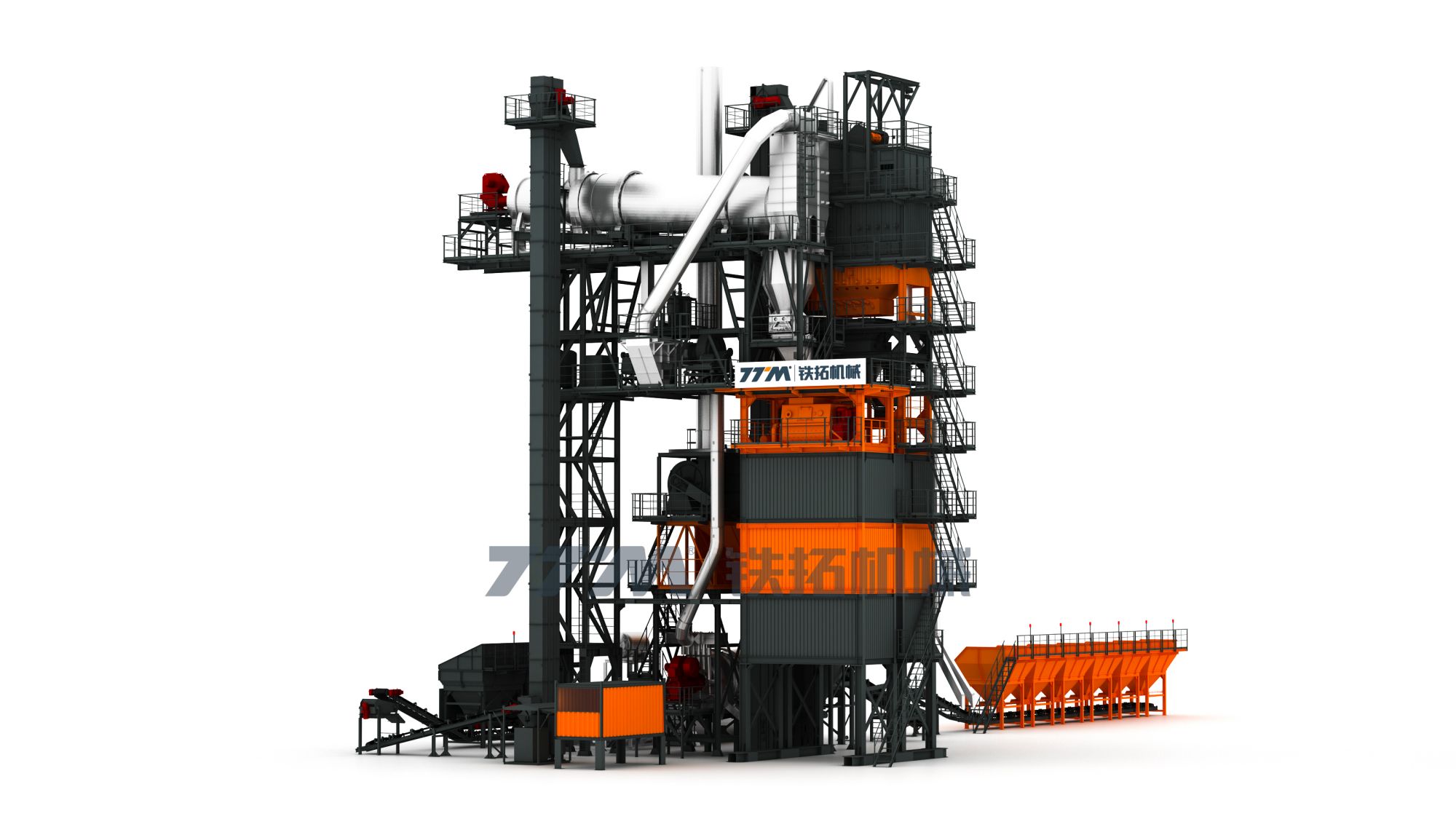Asphalt is one of the most commonly used materials in construction, primarily for paving roads and highways. The process of making asphalt involves several critical steps, from raw material collection to mixing and transportation to the construction site. In recent years, the use of recycled asphalt pavement (RAP) has become increasingly important in both sustainability efforts and cost efficiency. The TTM TS5030 RAP Recycling Hot Asphalt Mixing Plant plays a crucial role in this process, providing a reliable and high-performance solution for large-scale projects.
The production of asphalt starts with the collection of raw materials, including aggregate (gravel, sand, and crushed stone) and bitumen. These materials are then combined in precise ratios to form hot mix asphalt (HMA). The key to producing high-quality asphalt lies in the efficient blending of these materials at controlled temperatures, ensuring a uniform and durable final product.
Traditionally, asphalt production involved the use of virgin materials, but due to environmental concerns and cost factors, more companies are opting to use RAP. Recycled asphalt pavement is obtained by milling old asphalt from roads that need resurfacing. This material is then processed, cleaned, and reused in new asphalt mixes. The TTM TS5030 RAP Recycling Hot Asphalt Mixing Plant is designed to handle RAP materials, ensuring a seamless blend with fresh aggregate and bitumen.
The TTM TS5030 RAP Recycling Hot Asphalt Mixing Plant is an advanced piece of machinery built for large-scale asphalt production. It is designed with the capability to process high volumes of RAP, which reduces the need for new raw materials and cuts costs for large infrastructure projects. The plant is known for its exceptional reliability and performance, making it a popular choice among manufacturers and contractors worldwide.
This plant integrates state-of-the-art technology to optimize mixing efficiency and temperature control, ensuring that the final asphalt product meets the highest quality standards. With a capacity to produce large quantities of asphalt in a short amount of time, the TS5030 is ideal for large construction projects, such as highways, urban roads, and airport runways.
One of the main advantages of the TTM TS5030 is its energy efficiency. The plant is designed to minimize energy consumption while maintaining optimal performance levels. This makes it an environmentally friendly option, as it helps reduce the overall carbon footprint of the asphalt production process.
Using RAP in the production of asphalt provides numerous benefits, both environmentally and economically. Recycled asphalt reduces the demand for new raw materials, conserving natural resources such as aggregates and bitumen. It also helps to reduce waste in landfills, as old pavement is given a second life in the production of new asphalt.
In terms of cost, RAP is significantly cheaper than using virgin materials. This reduction in material costs is especially important for large-scale projects where budget constraints often come into play. The TTM TS5030 RAP Recycling Hot Asphalt Mixing Plant is designed to effectively incorporate RAP into asphalt mixes, delivering high-quality pavement while reducing production costs.
Moreover, the use of RAP improves the durability and longevity of the asphalt. Recycled asphalt tends to have better bonding properties, making it more resistant to cracking and other forms of wear and tear. This results in longer-lasting roads and highways, which is essential for maintaining infrastructure in the long term.
The TTM TS5030 RAP Recycling Hot Asphalt Mixing Plant is a game-changer for manufacturers and contractors involved in large-scale construction projects. By effectively recycling asphalt materials, it reduces costs, conserves resources, and promotes environmental sustainability. With its superior performance, energy efficiency, and high-quality production capabilities, this plant stands out as a top choice for modern asphalt production.

